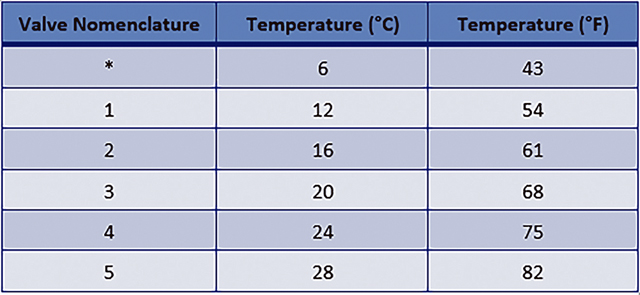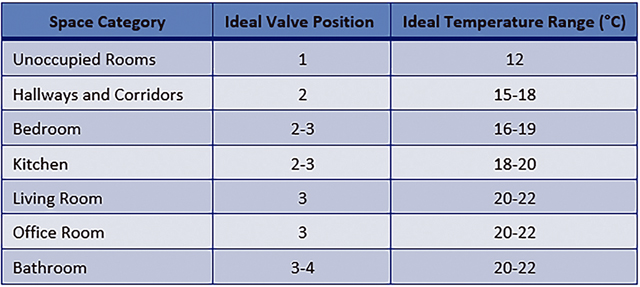
Every October, the Department of the Air Force empowers installations to bring attention to energy use and how to better manage resources. We encourage Airmen and Civilians to create new human habits guided toward energy conservation. It is important to emphasize, habits are not only for the month of October. New habits can be carried all year round.
Energy Action Month 2024: Last year of “Powering Possibility”
Each year, Energy Action Month recognizes and highlights different themes. 2024 is the final year of the three-year theme, “Powering Possibility.” The DAF is highlighting its innovative approach to the development of resilient energy technologies to strengthen the combat capability and readiness of our forces both now and in the future.
Energy conservation and boosting energy efficiency plays a major role in our energy resilience. With conservation or improve efficiency, we can better plan for a more robust infrastructure and make better informed decisions for future energy demand. Your actions have a ripple effect on our energy dependence.


What is energy conservation and why it is important?
Energy conservation is achieved by minimizing energy consumption. This should not be confused with energy efficiency, which is defined as using technology that requires less energy to perform the same function. On most occasions, energy efficiency requires homeowners to make an investment toward current technology. Energy conservation has little to no cost to your pocket. These new habits can have numerous benefits or advantages. The most important benefits include:
- Lower energy cost. Lighting accounts for approximately 10 percent of electricity consumption in households. In commercial buildings, lighting is approximately 25–40 percent of electricity consumption.
- Less harm to the environment. Burning fossil fuels generate emissions that enter the environment and create a greenhouse effect. This effect traps heat and destabilizes the Earths temperatures, thus contributing to climate change. Estimated annual CO2 emissions are 14,020 pounds per household, assuming approximately 943 kWh per month (Source: U.S. Energy Information Administration — Residential Energy Consumption Survey).
- Improves air quality. Clean air can reduce respiratory issues and improve overall health of the population. Consequently, fewer pollutants are absorbed by land and water bodies, resulting in improved water quality. Moreover, better air quality can help growth, reproduction and increase survival of vegetation. (Additional information can be found at: https://www.epa.gov/enviroatlas/enviroatlas-benefit-category-clean-air).
Less energy demand can have an impact on sustainable energy for the future. This plays a role in extending the life of fuel resources, and ultimately, eliminates dependency of fossils fuels. This promotes the development of more sustainable technology and integration of more clean renewable energy sources to our energy generation.
Better understanding conventional radiators located around your workplace or household:
- Radiators heat the air around them through convection. Hot water flows though the pipes within the radiator, transferring heat to the metal surface, this heat warms up the air in the room in a circular motion.
- Radiators are supposed to warm up the space, not the person.
- Numbers on the radiator valve represents a different temperature. Which also represents the temperature of the room, not the radiator. Keep in mind, temperature ranges vary by valve manufacturers.
- Set and forget! It is recommended to set your radiator valve at a comfortable temperature for you, and not regularly changing the settings of the valve. Each space has a recommended ideal temperature for comfort.
- Proper ventilation of rooms. Ensure all windows are closed when the radiator is “on” (especially in higher settings), natural heat transfer is from hot to cold spaces. Set a time during the day for ventilation purposes. Controlled time in the morning and in the afternoon (3-8 minutes recommended time). Fresh air is needed for a healthy building.
- Clearance around radiators. Make sure all radiators are free and clear of large furniture, long curtains, clothing items, etc.
But also, you can help us in the day-to-day basis:
- Turn off lights when not in use or when natural daylight is sufficient.
- Turn off monitors at the end of workday. Enable power management function on office computers, which automatically puts monitors to sleep when not in use.
- Turn off office equipment when it is not needed at night or on weekends. Activate sleep settings on all printers, copiers, fax machines, scanners, and multifunction devices so that they automatically enter a low-powered sleep mode when inactive.
- Turn off power to computers, TVs, exercise equipment, lights, and all electronic devices when not in use to avoid wasting standby power.
- Plug multiple devices into a power strip with a surge protector so you can turn them all off with the flip of one switch, while also protecting them from damage.
- Use water wisely. Turn off when not in use, such as while brushing teeth and shaving. Prioritize water leaks, if needed.
- Carpool, use public transportation (e.g., buses, trains, etc.) or a bicycle to travel to work or different events.
As you can see, tips can be easily translated from your household to your workplace, and vice versa. Educate people around you and help us conserve energy and advocate for energy efficiency at the Kaiserslautern Military Community. Most importantly: If you do not need it, do not use it. Small changes can have a large impact over time.
Additional information on Energy Action Month can be found at https://www.safie.hq.af.mil/EnergyActionMonth/ or On DOE Federal Energy Management Program National Clean Energy Action Month can be found at https://www.energy.gov/femp/national-clean-energy-action-month#:~:text=October%20commences%20National%20Clean%20Energy,distributed%20energy%20and%20energy%20procurement.
For energy-saving measure checklist visit Energy Star.gov at https://www.energystar.gov/buildings/save_energy_commercial_buildings/ways_save/checklists
For more energy information, please email the 86th Civil Engineer Squadron Engineering Flight at 86CES.CENPE-EnergySection.CEN@us.af.mil. We will be happy to help you with any issue.


